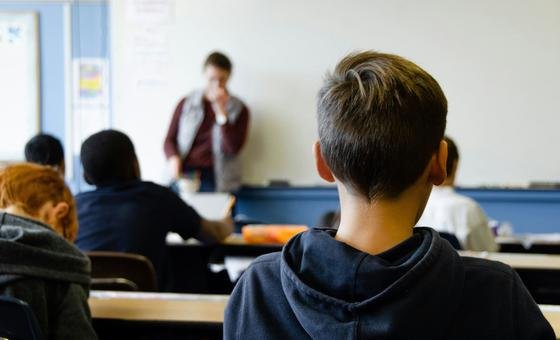The report, based on data from nearly 280,000 young people aged 11, 13 and 15 in 44 countries, highlights the growing crisis on adolescent well-being. Girls and economically deprived adolescents are the most affected.
Dr Hans Kluge, WHO Regional Director for Europe, said: “Today’s teenagers are facing unprecedented challenges in their social environment. This can have long-term effects on their health and future prospects.”
“The findings of this report are a wake-up call to us that we must take urgent action to improve the conditions in which our young people are growing up,” he stressed.
Decreased support from family and friends
Support from family and peers is important for adolescents’ mental health and overall development, yet the report found an alarming decline in both.
Only 68 percent of teenagers felt supported by their families between 2021 and 2022, compared to 73 percent in 2018.
The decline was even sharper for girls. Only 64 percent felt strong family support, compared to 72 percent in 2018.
Similarly, support from classmates also decreased by three percent. The decline was particularly pronounced among older adolescents, who are already more vulnerable to mental health challenges.
The report also shows that socioeconomic status plays a significant role in shaping the experiences of teenagers, with a nine percent gap between teens from low-income and wealthy families.
This gap was also seen in relationships with peers, with teenagers from disadvantaged backgrounds less likely to receive support from their friends or classmates.
Increase excitement in the classroom
Academic pressure is increasing, which is having a serious impact on the mental health of adolescents.
At the time of the study, two-thirds of 15-year-old girls felt too much pressure for schoolwork, up from 54 percent in 2018. Boys also reported increased stress, although rates were relatively low among boys.
Dr. Irene Garcia-Moya, one of the report’s authors, said, “The growing pressure on teenagers is a multifaceted problem. Girls are often caught between expectations of academic excellence and traditional social roles, while boys are often expected to be strong and assertive. “There are pressures that making them hesitant to seek the support they need.”
The report also found that girls are less likely to receive support from their teachers.
Dr Natasha Azzopardi-Muscat, director of national health policy and systems for Europe at the World Health Organization, warned: “This report points to a serious and growing gap in support systems for adolescent girls, not just in schools. Faced with increasing pressure, they also receive little support from families and teachers.”
“This is not the first time that an HBSC study has shown differential health effects for boys and girls,” she said, emphasizing the need to focus on the gender dimension of the problem.
Recommendations for action
Dr Hans Kluge, WHO Regional Director, said: “Our report makes it clear that no single sector or industry can tackle this challenge alone.” He said the report emphasized the need for immediate, coordinated efforts.
“Creating safer and more inclusive school environments, providing financial support as needed and implementing gender-sensitive interventions require collaboration across the education, health and public policy sectors,” she said.
Key recommendations include policy interventions targeting families to strengthen family support, such as special programs for parents and financial assistance for low-income families.
Apart from this, it is also important to reduce the pressure in schools. The authors suggest schools adopt more balanced homework policies, reduce class sizes, and integrate mental health support into the curriculum.
Moreover, it is important to address discrimination through social policies and programs that prioritize marginalized populations.
Dr. Hans Kluge emphasized the importance of involving adolescents at every stage of the policy-making process. “This is a key part of WHO Europe’s flagship Youth4Health initiative, which ensures that young people have a say in decisions that directly affect their lives,” he said.

